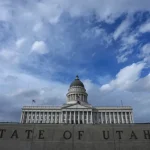

In the midst of another contentious presidential election, partisans on either side predict doom if the opposing candidate wins. Elections are important, but transitions in presidential power don’t usually cause the dramatic changes to national character or day-to-day life that voters may fear. This is thanks to our system of federalism, a principle to which voters and leaders of all ideologies should recommit.
Federalism is the principle that lawmaking power is apportioned to both the federal and state governments. This essential part of the genius of the Constitution is a feature, not a bug, and it limits the direct impact of any one presidential election on our lives. By specifically listing the powers granted to the federal government, it constrains national power and reserves the majority of authority to levels of government closer to those who will be governed or to the people themselves.
This arrangement has powerful benefits. Allowing states to pursue different approaches to pressing topics allows policy experimentation that can provide practical knowledge to other states. It can serve as an escape route for those seeking a community more amenable to their concerns. Both states and the federal government can check overreach by the other that would result in diminishing rights.
The value of federalism makes a recent report from Tony Woodlief and Tenille Martin of the Center for Practical Federalism very important. The report, the “Federalism Scorecard,” is “an index of vulnerability to federal pressure.” The report identifies 20 indicators of “the balance of power between a citizenry’s elected representatives and unelected agency officials.”
My home state of Utah ranked first among the states. Utah’s strengths include limiting the state’s revenue from federal agencies and creating contingency plans if federal grants are not continued. Utah’s weaknesses include insufficient limits on lobbying by state agencies on federal legislation, administrative regulations, and federal spending.
The Federalism Scorecard, however, does more than discuss federalism and policies that can protect states from possible federal overreach. It actually illustrates the potential power of the principle. Areas where Utah is doing well, for example, can serve as a model to other states. In areas where Utah lags behind other states, such as Tennessee or Oregon, for instance, it can learn from those states and even seek to improve on their approaches to federalism.
Interestingly, the report finds the protection of federalism is a nonpartisan issue. A mix of Democratic and Republican states score well (or poorly) on the scorecard. This shows that federalism can be, and should be once again, broadly popular among most of the public.
Protecting federalism ensures that the crucial buffer between families, communities, and residents on the one hand and the federal government on the other will be preserved. This is a path of hope in a polarized political world.
CLICK HERE TO READ MORE FROM THE WASHINGTON EXAMINER
Because it pushes toward this path, the Federalism Scorecard provides a valuable service to policymakers and those concerned about the outcome of the 2024 presidential election.
Partisans on both sides who are concerned about what may happen should the opposing presidential candidate win should seek to strengthen areas of weakness highlighted by the scorecard. By pursuing the path of federalism, even in their own political interest, partisan policymakers will lower the stakes of presidential elections, elevate a core principle of governance, and help all of us more smoothly navigate what would otherwise be an intolerably bumpy ride through each successive presidential election.
William C. Duncan is the constitutional law and religious freedom fellow at Sutherland Institute, a nonprofit organization whose mission is to advance principled public policy and promote the constitutional values of faith, family, and freedom.






